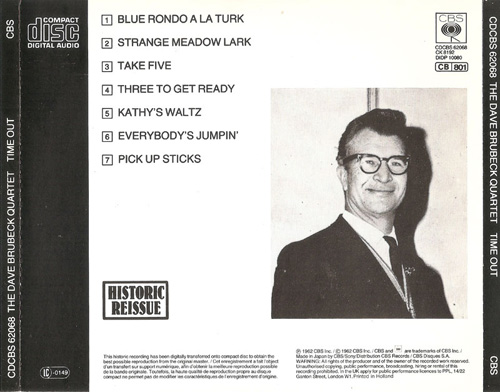Although a touch underrated, Jazz at Oberlin is one of the early Dave Brubeck classic recordings. The interplay between the pianist-leader and altoist Paul Desmond on "Perdido" borders on the miraculous, and their renditions of "The Way You Look Tonight," "How High the Moon" and "Stardust" are quite memorable. Brubeck's piano playing on "These Foolish Things" is so percussive and atonal in one spot as to sound like Cecil Taylor, who would not emerge for another two years. With bassist Ron Crotty and drummer Lloyd Davis giving the Quartet quiet and steady support, Brubeck and Desmond were free to play at their most adventurous. Highly recommended. Scott Yanow
Marvell / Jack Strachey
2 - Perdido 7:32
Juan Tizol
3 - Stardust 6:30
Hoagy Carmichael
4 - The Way You Look Tonight 7:51
Dorothy Fields, Jerome Kern
5 - How High The Moon 9:11
William Lewis, Nancy Hamilton
Credits :
Paul Desmond - Alto Saxophone




















.jpg)
.jpg)




